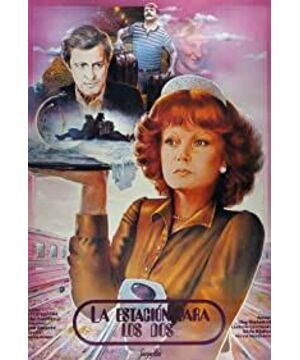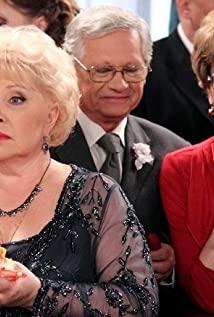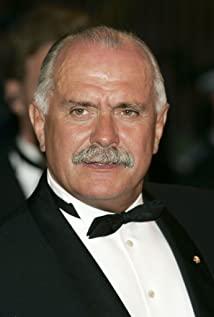The plot of this film is very strong, with the elements of general melodrama, but it is not as hypothetical as the general melodrama. The film pays great attention to the authenticity of the environment, because it fully shows the complexity of social life while showing the fate of the protagonist.
The difference from Ryazanov's past films is that the protagonists in the past were mostly intellectuals such as teachers, doctors, engineers, scouts, agency workers and photographers, while the characters in this film are all pianists except Platon. , the rest are people from the grassroots society: restaurant waiters, conductors, porters, police, opportunists, hooligans, thieves, and prisoners in labor camps... Without the authenticity of the environment, it is impossible to have the authenticity of the characters. The scene in the labor camp at the beginning of the film was actually shot. Ryazanov said that the first time he took the film crew to the labor camp, he saw the prisoners with shaved heads, black cotton-padded jackets, and winter hats. It's like being burned by something.
Photographer Alisov shot every exterior scene of the camp against the backdrop of the dazzling sun in the north, creating a feeling of being cold, abandoned, and far from the crowd. Moreover, Alisov always pointed the camera at the strong light and bare light bulbs of the labor camp, highlighting a sense of discomfort and making the audience feel miserable and desolate, just like Ryazanov first saw the misery in life That's how it feels at one time.
Most of the film's plot takes place in and around the station, so the director never forgets to express the noise, hustle and bustle of this environment and the fluidity of people coming and going. The sound processing of the film was very successful, and the sound recording achieved the desired effect. When the protagonist is speaking, the broadcast sound in the background, all kinds of noisy sounds are never interrupted, which makes people believe that this is a real station. The director not only aimed the camera at the protagonist, but also showed the general customers in the restaurant that had nothing to do with the plot, which added to the life of the film. The realism of the environment makes it possible for the film to show the personal life of the protagonist against the background of broad social life, giving the film a distinct sense of the times.
The characters in Ryazanov's films are generally not easy to see at a glance. With the development of the plot, the protagonist seems to have taken off layers of coats and showed his true character. Vera didn't make a good first impression. She is rude, disrespectful, inattentive, and even a little gloating, but gradually, audiences find her kind-hearted, sincere, yearning for a better future, and dedicated. Both Platon and Vera are unfortunate people in life. Platon's wife is extremely selfish, and Vera's husband is unfaithful to her. Therefore, it is completely understandable that they cared about each other, sympathized with each other, and developed love. The film convincingly shows their process from quarreling to falling in love, and as the plot develops, it reveals their vivid and colorful characters step by step from the dynamic.
This film not only reflects the encounter between the hero and heroine on a small station, but also shows the broad social life of the Soviet Union through the main line of "encounter". Soviet films generally do not show scenes such as prisons, but the beginning and the end of this film are front-facing labor camps and prisoners. The director believes that there are aspects of life that are worthy of praise and aspects that must be revealed. Can only praise, not allowed to expose is not comprehensive. Ryazanov opened a dark corner of society in this film. He said it was because of his deep love for his country and people that he faithfully represented certain scars in his life on the screen. The word Marina, the girl on duty at the foreign guest house, was very interesting. Marina proudly told Vera that although her wedding date has been determined, the groom has not yet been chosen, because she applied for marriage registration with two different people in two residential areas at the same time. . This stroke reflects the values of some young people in Soviet society on issues such as marriage and love. The service quality of the restaurant is low, the food is unpalatable, and the trend of going through the back door is prevalent. These phenomena familiar to the audience are naturally expressed in the film in a single-shot way, which has aroused the audience's resonance and thinking about real life.
Platon and Vera ran back to the labor camp in the vast snowfield with great passion: when the exhausted Platon played the accordion, Vera supported him with his back and prevented him from falling down. The scene shows the hero and heroine's confidence in the future, as if there is a sublime emotional force inspiring them.
"Two People's Station" is a film with multiple themes. It not only praises the beautiful love between middle-aged men and women, but also reflects a cross-section of complex social life. The film's capacity and information are very large. It is sometimes laughing, sometimes tear-jerking, a unique and novel tragicomedy. The plot is strong, the characters are distinct, and the psychological portrayal is delicate. Therefore, it is a film that is loved by audiences of all walks of life and appreciated by both refined and popular people. It shows a three-dimensional picture scroll of colorful social life through the rough personal fate of the hero and heroine with different social status.
The director Ryazanov, born in 1927, is the People's Artist of the Russian Federation. In 1950, he graduated from the Directing Department of the Soviet Film Academy. In 1956, he became famous for his filming of the comedy "Carnival Night". This film breaks through the mode of ordinary comedy films. Ryazanov properly uses musical films and lyrical comedies in terms of expression techniques, and pays great attention to the atmosphere and rhythm of the film. Ryazanov believes that the interpenetration and mutual influence of comedy and other styles is conducive to reflecting the diversity of life more comprehensively, convincingly and effectively, and to think more deeply and analyze the problems in life. "A Station for Two" is his 15th comedy film, and it is known as a trilogy reflecting the love life of middle-aged people together with the two previous films "A Mocking of Fate" and "The Office Story". . His films are loved by audiences. He once said: As he grew older, his films became more and more tragic, ranging from comedy to tragicomedy, and now he has made several tragedies.
View more about Vokzal dlya dvoikh reviews








